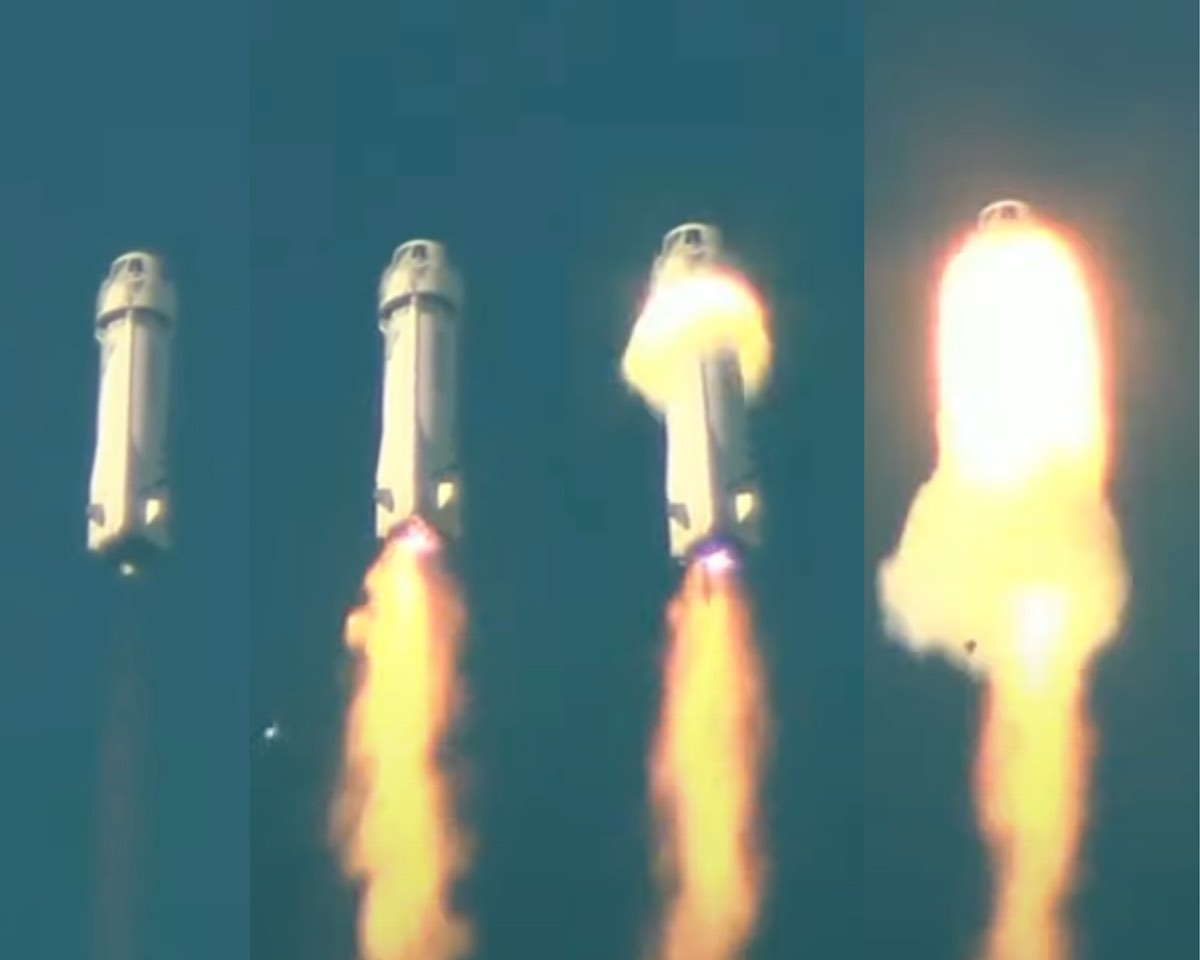The US Federal Aviation Administration (FAA) completed an investigation into the accident that occurred during last year’s flight of the New Shepard suborbital spacecraft. The organization has prepared a list of measures, after which Blue Origin will receive permission to continue operating the system.

The New Shepard accident occurred on September 13, 2022, during the NS-23 mission. It was an unmanned flight. The spacecraft carried 36 payloads provided by various commercial customers.
New Shepard successfully broke away from the starting table and began to ascend. But at the 65th second of the flight, when the spacecraft was preparing to overcome the sound barrier, there was a malfunction of the engine. As a result, the automation activated the emergency rescue system. It separated the capsule from the spacecraft, after which it made a soft landing on parachutes. As for the booster, it crashed.
During the investigation, the FAA concluded that the accident occurred due to a structural failure of the engine nozzle caused by a higher than expected operating temperature. This coincides with the conclusions of Blue Origin specialists published back in March. They stated that the reason for the excessive heating of the nozzle was the changes made to the design of the cooling system.
Despite the completion of the investigation, so far Blue Origin cannot resume New Shepard flights. To obtain a new permit, the company needs to take 21 corrective actions.These include redesigning engine components and nozzles to improve their design characteristics, as well as organizational changes. In turn, Blue Origin announced the receipt of a letter from the FAA and its intention to resume New Shepard flights in the near future.
Recall that the FAA recently completed an investigation into the Starship spacecraft accident and prepared a list of 63 measures to be performed by SpaceX in order to obtain permission for the next flight.
According to https://spacenews.com
Follow us on Twitter to get the most interesting space news in time
https://twitter.com/ust_magazine
